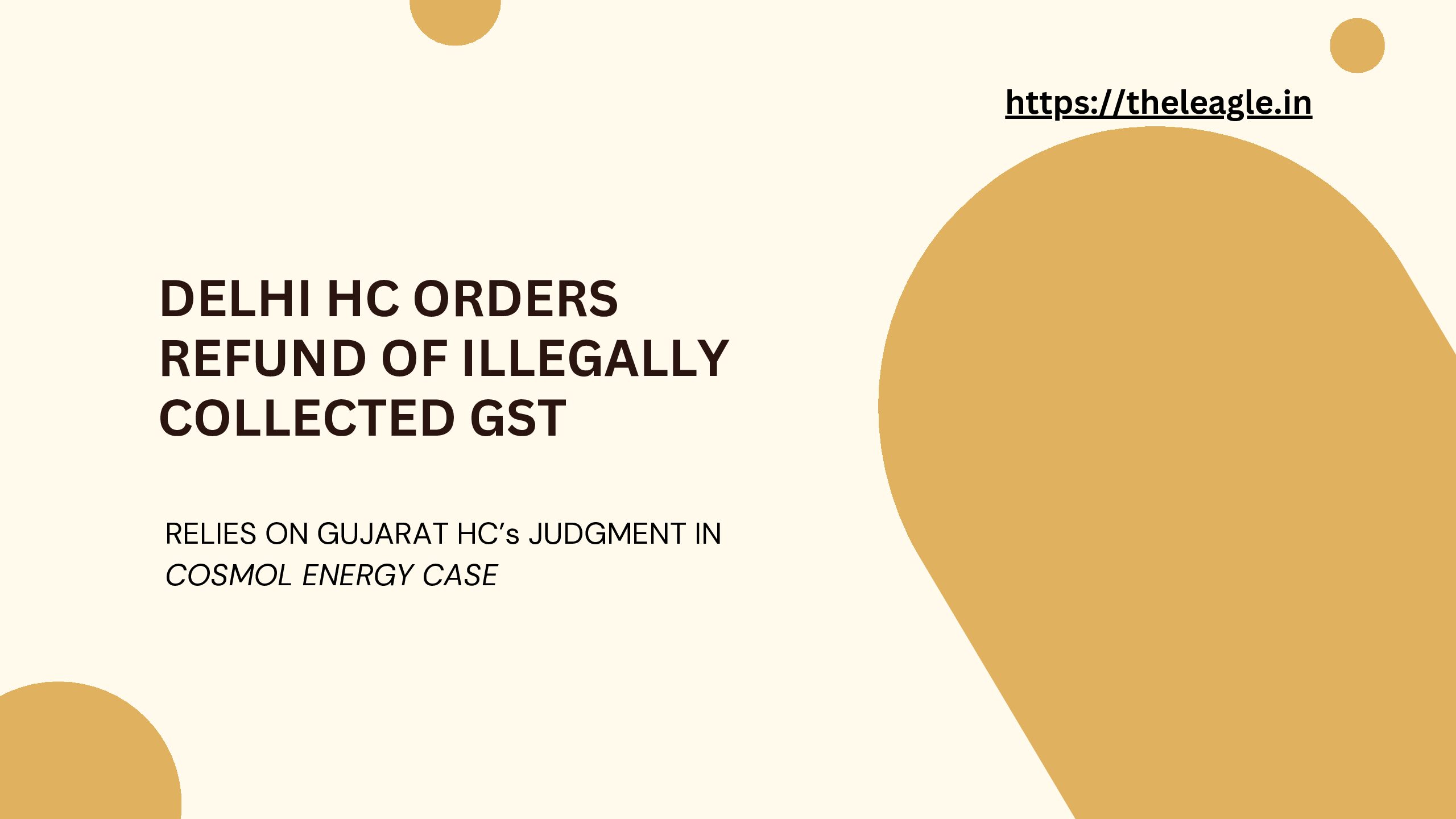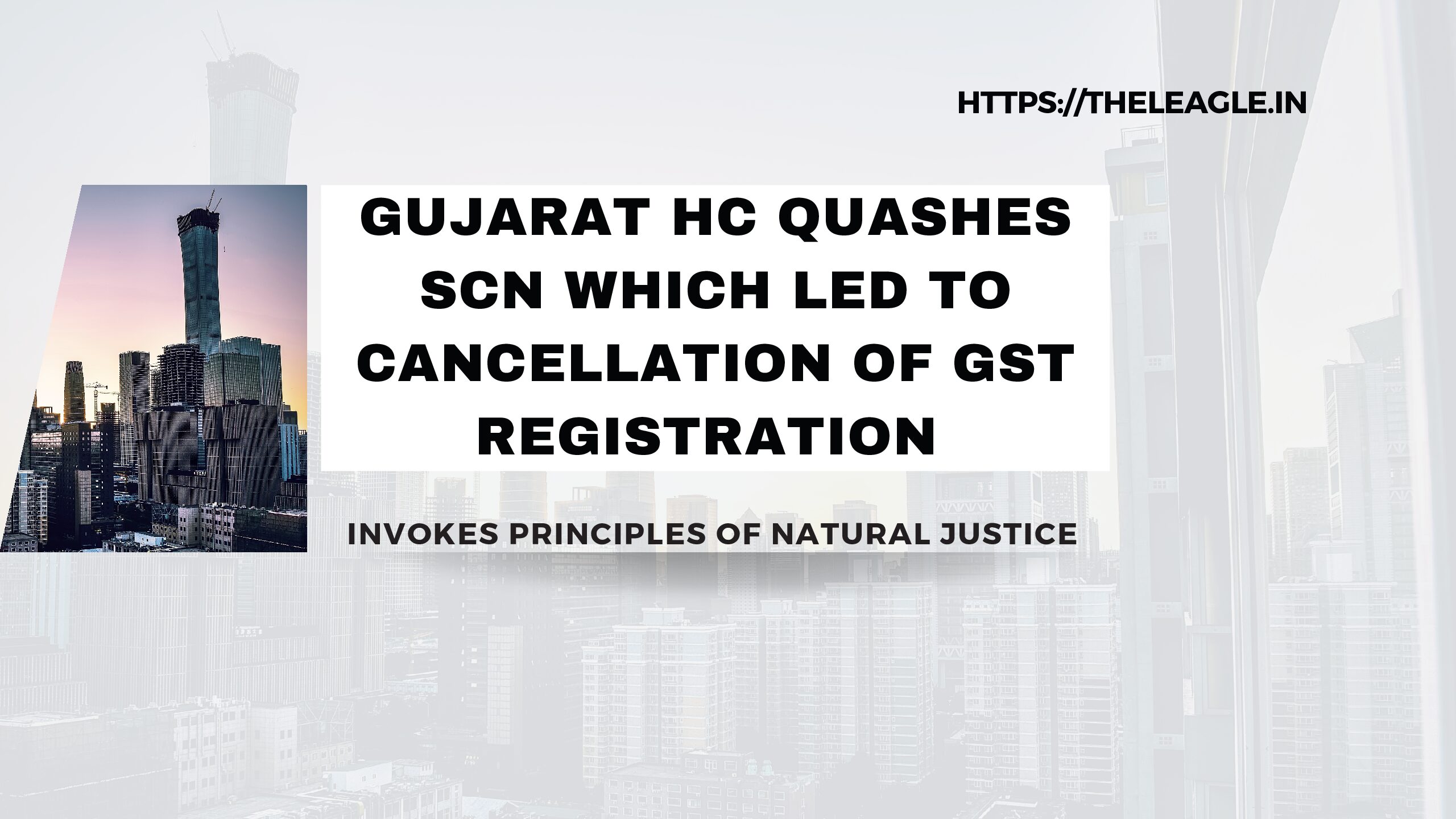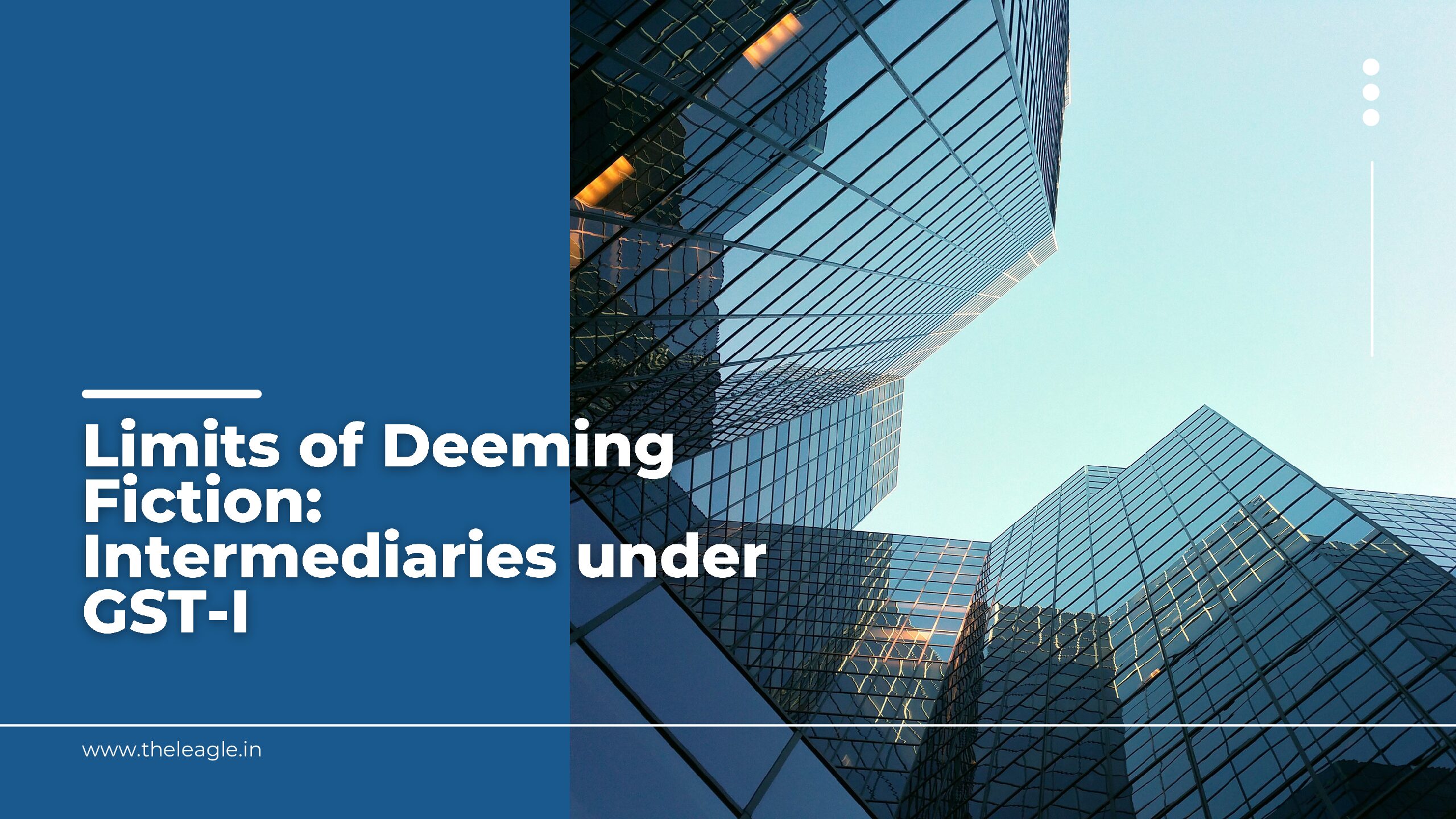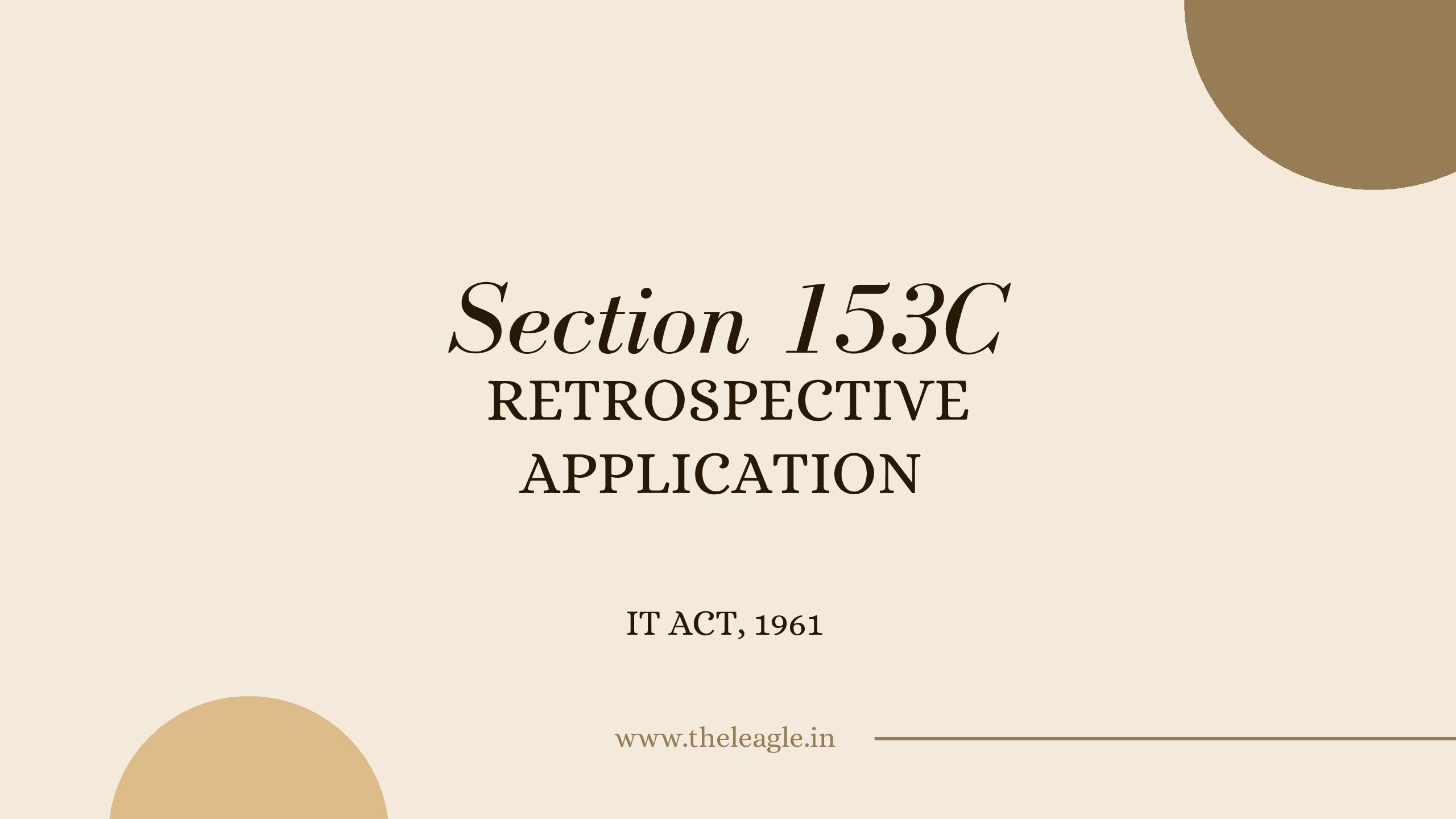Introduction
In a recent and much discussed judgment, the Gujarat High Court has held that assignment by sale and transfer of leasehold rights of a plot of land amounts to transfer of benefits arising out of immovable property. The High Court concluded that the transfer would not amount to a supply under Section 7, CGST Act, 2017 read with Schedule II of the Act.
My usual lament is about length of judgments. This judgment is 280 pages and could very well have been less than half. But the Judges felt the need to reproduce the entirety of arguments and copiously cite precedents relied on by the parties to the case, even if several of them had no proximate bearing on the High Court’s conclusion. While this lament may sound repetitive, I believe it is important to constantly strive for more brevity and more clarity in our judgments.
Regardless, a quick summary of the case is below.
Issue before the Gujarat High Court
The brief facts of case are: Gujarat Industrial Development Corporation (‘GIDC’). GIDC acquires land and develops the same for industrial estate by creating infrastructure such as road, drainage, etc. and allots a plot of land on long term lease for 99 years to a person/entity. A registered deed is executed between GIDC and the lessee. The lease deed allows the lessee to further assign the leasehold rights and any interest in the land to a third person with approval of GIDC. In the impugned case, Gujarat Chamber of Commerce and Industries was the lessee and its case was that the transfer of leasehold rights to a third party did not attract GST.
In the impugned case, the land was leased to the lessee, and the latter constructed a building on it. And the leasehold rights that were assigned related to both the land and the building so constructed. The High Court thus framed the issue specifically as: whether assignment of leasehold rights alongwith the building thereon would be covered by the scope of supply to levy GST as per the CGST Act, 2017 or not?
Arguments and Relevant Provisions
The crux of lessee/petitioner’s argument was that leasehold rights are benefits arising out of land. A succinct logical flow of the argument can be stated as follows:
- The definitions of immovable property under the General Clauses Act, 1897 and Registration Act, 1908 both include ‘benefits that arise out of land’.
- Leasehold rights are benefits arising out of an immovable property.
- Thus, transfer/assignment of leasehold rights amounts to transfer of an immovable property.
- Since transfer of immovable property is not within the scope of ‘supply’ as defined under CGST Act, 2017 it cannot be subjected to GST.
The Revenue’s case was that while sale immovable property is outside the scope of supply of GST laws, interest in immovable property like leasehold rights which is transferred by way of sale is a ‘supply of services’ is liable for GST. The Revenue further argued that transfer of right to occupy a land by GIDC to lessee constitutes a supply of service. And that the nature of interest in land would not change merely because the lessee makes an absolute transfer of leasehold rights to a third party.
To buttress its argument that leasehold rights were benefits arising out of a land, the petitioner’s relied on a galaxy of judgments in the context of TPA, 1882 where courts have elaborated on what constitutes a movable or immovable property.
Supply has been defined under Section 7, CGST Act, 2017 to include sale, transfer, barter, exchange, licence, rental, lease or disposal made or agreed to be made for a consideration in the course or furtherance of business. Further, Clause 5(a), Schedule II, CGST Act, 2017 states that renting of immovable property shall be treated as supply of services. Thus, while renting/leasing is within the scope of supply the assignment of leasehold rights is not specifically included in the definition of supply.
Reasoning and Conclusion
The Gujarat High Court did not accept the Revenue’s argument. The High Court noted that the first transaction between GIDC and lessee merely transferred the right of possession to the latter as the right of ownership of the plot remained with GIDC. The second transaction wherein the lessee assigned all the leasehold rights in the property to a third party involved transfer of absolute rights. The High Court added:
when the lessee-assignor transfers absolute right by way of sale of leasehold rights in favour of the assignee, the same shall be transfer of “immovable property” as leasehold rights is nothing but benefits arising out of immovable property which according to the definition contained in other statutes would be “immovable property”. Therefore, the question of supply of services or place of supply of services does not arise … (para 52)
Thus, transfer of land for lease of 99 years by GIDC to lessee is taxable under GST as per clause 5(a), Schedule II, CGST Act, 2017. But transfer of such leasehold rights would be nothing but transfer of immovable property since the consideration paid is as much an alienation as sale or mortgage. (para 64) The High Court also invoked the meaning of term ‘assignment’ to mean that it includes transfer of all rights of a property, the whole interest with rights and liability to sue and be sued. (para 67-68) And the implication of the above understanding of assignment was that the lessee was removed from the picture on transfer of leasehold rights.
But can the lessee transfer a title superior to the one they received? If the lessee only received leasehold rights from GIDC can it transfer/assign absolute rights to a third party? To this end, the High Court emphasised that GIDC only leased the plot of land and the lessee constructed a building and developed a land for the purpose of business. The entire land and building was therefore transferred along with leasehold rights and interests in land which is a capital asset in the form of immovable property. The lessee, therefore, earned profits by operating a building which constitutes ‘profit a pendre’ which in turn constitutes as immovable property as per the Anand Behra case.
Legislative Intent or Strict Interpretation?
The Gujarat High Court has relied on both: strict interpretation of tax statutes and legislative intent to hold that assignment of land the building does not amount to a supply under GST. Using both interpretive techniques in a single judgment is a bit strange. The default approach in interpreting tax statutes is – strict interpretation. Courts usually resort to discovering legislative intent if there is ambiguity or uncertainty in the relevant provisions. In the impugned case, the Gujarat High Court declared that it must follow strict interpretation of law since regard must be given to clear meaning of the terms since entire issue is governed by language of the provisions. (para 58) And yet in the succeeding paragraphs the High Court goes into legislative intent and history in detail before arriving at its conclusion. (paras 60-62)
The Gujarat High Court specifically invoked legislative intent when it noted that when legislative intent is not to levy GST on sale of immovable property, the Revenue’s argument of treating assignment of leasehold rights as equal to renting of immovable property would be contrary to legislative intent. (Para 82) This issue could have been easily adjudicated upon by relying on the strict interpretation of statutes by holding that Clause 5(a), Schedule II, CGST Act, 2017 only mentions ‘renting of immovable property’ and cannot by interpretive gymnastics be held to include ‘assignment of leasehold rights’.
This interpretive approach where the High Court was trying to rely on two different interpretive methodologies without reconciling them is indicative of a ‘let cover all bases’ approach instead of a narrow inquiry into the issue at hand.
Conclusion
It is important that the ratio of this case is understood in the specific context of this case. The specific context is that the lessee received leasehold rights of a plot of land from GIDC. The lessee in turn developed the land, constructed a building, and assigned the leasehold rights over the land and building to a third party. The High Court stressed on the development of land made by the lessee after receiving the leasehold rights and that the assignment by sale by the lessee was of both the land and building. The conclusion may have been different if the land received on land was further leased to a third party on ‘as is where is’ basis.



